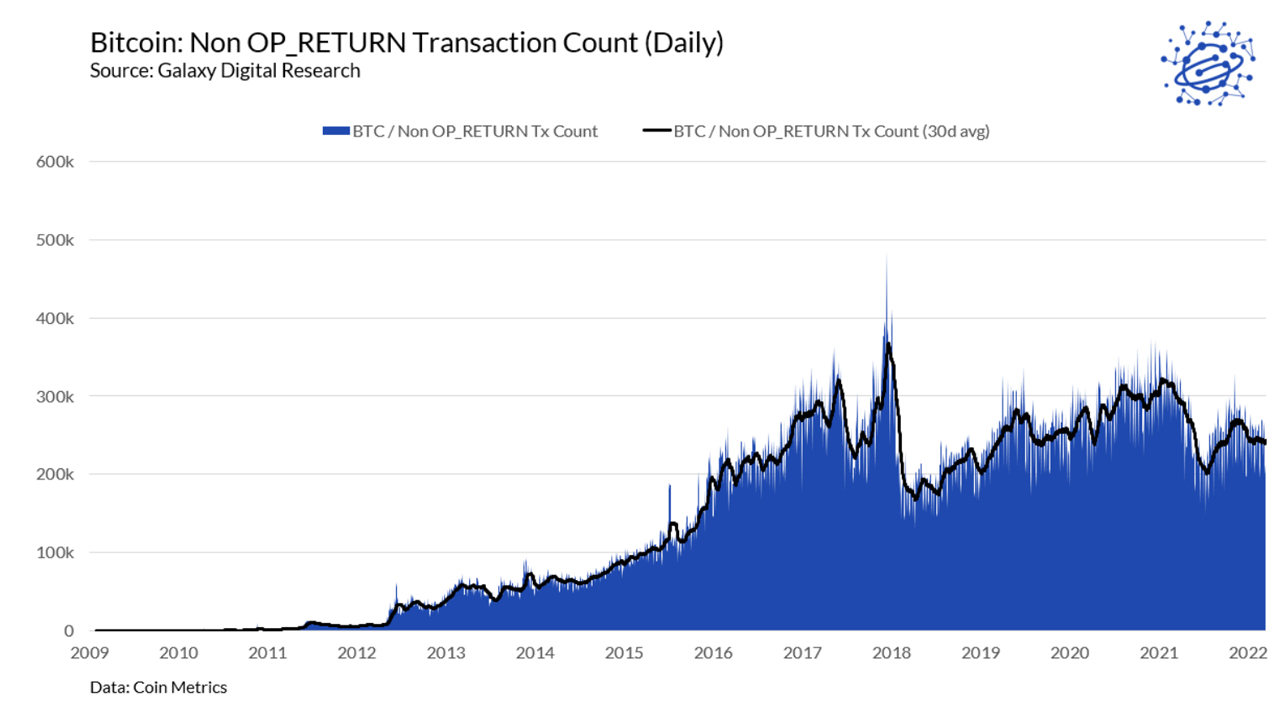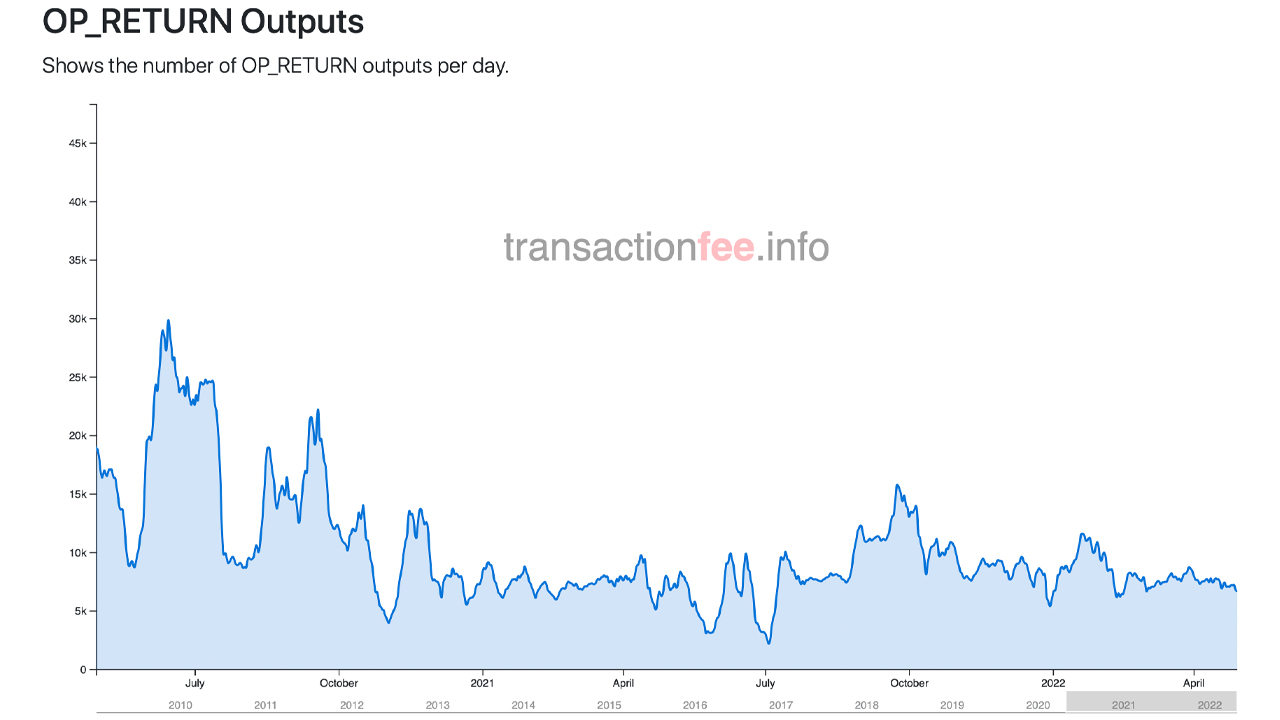
There were many discussions three years ago about data embedded into bitcoin transactions, and how much block space these OP_Return transaction consume. Recent trends have seen a decrease in OP_Return transaction usage and a reduction in network fees.
Bitcoin Network Fees are Significantly Reduced as OP_Return Transaction Domination Slows
Bitcoin transfer fees dropped quite a bit in the past nine months, since July 1, 2020. The average transaction cost to send Bitcoin (BTC), was $10. According to statistics, at April 2022 the average cost of sending bitcoin (BTC) was 0.000042 BTC ($1.62 per transaction). Alex Thorn from Galaxy Digital Research has published a monthly report explaining why Onchain transactions are so much cheaper.

Thorn’s report explains there are a number of reasons why fees are lower including the use of transaction batching, increased Segregated Witness (Segwit) adoption, and Lightning Network usage. Another trend Thorn’s report covers is the fact that OP_Return transactions have declined. According to Thorn, after Veriblock was launched in 2018, the popularity of the Bitcoin blockchain’s storing of arbitrarily generated data soared.

However, recent OP_Return transaction stemming from Veriblock or Tether via Omni have been down. Galaxy Digital Research’s study explains why most tethers moved away from the Omni Layer network, which uses OP_Return transaction to other chains. While Thorn’s report briefly mentioned the spike in OP_Returns after Veriblock it doesn’t mention how controversial storing arbitrary data on the Bitcoin blockchain was at the time.

An OP_Return can be used to mark transaction output. Users have the ability to add approximately 80 bytes null_data (to the Bitcoin blockchain) to any transaction. By using Bitcoin’s script and null_data, a great number of entities have used it to write messages on the blockchain and record important data. Popular and controversial OP_Return usage began to increase at the end 2013 and early 2014. However, research has shown that less than 2% transactions involved OP_Return transactions before 2017.

Current daily data shows that OP_Returns have dropped in recent times and it is very different than when Veriblock captured 57% of Bitcoin’s OP_Return outputs in 2019. Bitcoin advocates were concerned about the possibility of arbitrary data being stored on the Bitcoin blockchain by individuals and organisations. One paper published on December 11, 2020, discusses “dominating” OP_Return outputs in a paper called “The Impact of Omni and Veriblock on Bitcoin.”
Veriblock is not the only one who published OP_Return transactions between 2018 and 2019. The top five publishers were Omni/Tether (Factom), Komodo Blockstore, Blockstore and po.et Chainx. While many of these projects are still around, there is not as much OP_Return transaction production today as in the past. Of course, there’s a chance the use of OP_Return outputs dominating BTC transactions could happen again. While reports like Thorn’s study and current data show OP_Return transactions have lowered, there’s no clear explanation for why this has happened.
How do you feel about recent declines in Bitcoin OP_Return transaction volume? Please comment below to let us know your thoughts on this topic.
Images CreditsShutterstock. Pixabay. Wiki Commons
DisclaimerThis information is provided for educational purposes only. This article is not intended to be a solicitation or offer to sell or buy any product, service, or company. Bitcoin.com is not a provider of investment, tax, legal or accounting advice. This article does not contain any information, products, or advice that can be used to cause or be attributed to the author or the company.